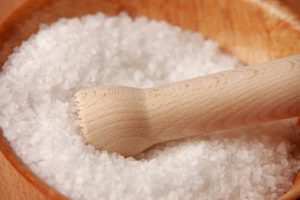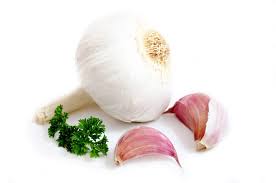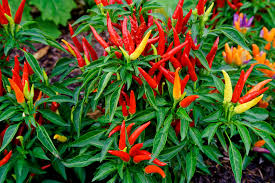An All-NaturalApproach to Promote a Plants Health

Epsom salt can do wonders to remove aches and pain I remembered from child I would hear the older generation talk about soaking in a tube of water along with Epsom salt after a hard day to relieve the pain they were feeling but what has also been discovered years ago is the use of Epsom salt in the garden which can be beneficial to garden plants.
The use of Epsom salt in the garden is a safe method of boosting our garden plants’ health, what Epsom salt does is to enhance a plant’s green color along with flower bloom. Epsom salt consists of water, sulfate, and magnesium, stick around and learn the wonders of Epsom salt in the garden.
Testing your garden soil
The soil is at the heart or root of garden plants which means soil really do matters, there are many soil type so get to know your soil type and how to adjust if needed to meet your plant’s requirements. Before adding Epsom salt it is good to get a soil ph test done for the amount of magnesium that may be lacking.
Epsom salt in the garden
1. Magnesium is a major element that helps garden plant roots to absorb essential nutrients such as sulfur, nitrogen, and phosphorus. Since Epsom salt contains magnesium and magnesium helps to absorb nutrients adding Epsom salt will help with this process.
2. A lack of magnesium may cause leaves to curl, adding two tablespoons of Epsom salt in a gallon of water and applying to the plant’s foliage or leaves will offer some help.
3. Epsom salt will increase the sweetness of fruits, Epsom salt will increase the amount of chlorophyll increasing the plant’s energy to produce more sugar that will contribute to plants that are healthy and thriving. One or one and a half tablespoon in a gallon of water should do.
4. Plants such as peppers, roses, and tomatoes require lots of magnesium to grow healthy. The use of Epsom salt will help greatly.
5. If your soil is lacking magnesium then the use of Epsom salt by applying to the soil will help greatly.
6. The use of Epsom salt on indoor plants is recommended to keep your plants growing healthy.
7. It is believed that “misting plants leaves with a solution of Epsom salt and water or sprinkling around the plants base or roots will keep garden insect pest along with snails and slugs away”.
8. Two tablespoon Epsom salt in a gallon of water is a great way to feed your plants through their foliage or leaves once a month by misting the leaves.
9. Two tablespoons of Epsom salt to a gallon of water applied to the roots of nut trees will increase the nuts flavors.
10. Drenching seeds with Epsom salt and water is a great way to strengthen the cell wall boosting germination. One tablespoon of Epsom salt to one gallon of water added to the soil after planting will get seeds off to a good start.
11. Fill your 1-gallon tank sprayer with a gallon of water and a tablespoon of Epsom salt shake well and apply to your vegetable garden bed will produce good crop yield.
Note: We are not saying that Epsom salt is a cure-all for your garden plants what we have done is to simply look at some of the benefits that are derived from properly using this salt, by all means, other measures such as watering, fertilizing, pruning, etc… should be carried out in your garden to have success.
Additional Information
Potted and Indoor Plants
They say that “variety is the spice of life” which is so true because can you imagine life if everything was the same it would be pretty boring wouldn’t it? As a professional landscaper and gardener, I have worn many hats in this field from groundsmen, nurserymen, chemical pest control operators to interior plantscape technicians.
As an interior plantscape technician, I have worked at five-star resorts and private homes designing and installing plants which brought total transformation. Working indoors by bringing nature inside is pretty amazing but what I have learned about this method of gardening is that you’re working in a controlled environment where your plants are totally dependent on you to be sustained which means providing the right amount of lighting, water, and fertilizers to keep them growing healthy and vibrant.
Then there are issues of disease and garden insect pests that must be taken care of, for more on the care of indoor plants refer to the category section of this website. What I really want us to look at however is the use of Epsom salt on potted and indoor plants.
Fertilizing indoor plants
A mistake that has been made by many persons who care for indoor plants is the overuse of fertilizers, some believe that a little extra will do when this little extra can cause huge damage. If the manufacture’s direction calls for that amount over a specified period of time then the instruction should be followed.
When an indoor or potted plant has been given too much fertilizer what happens is that the salts from the fertilizer gather around the plant’s root zone and the reverse happens. Instead of plants taking up or absorbing water through their roots water is pulled from the plant causing yellowing, browning, and leaf drop along with wilting.
If you find yourself facing this challenge what is recommended is to place your potted plant in a tub or sink add a tablespoon of Epsom salt in a gallon of water shake well and pour this mixture into the pot slowly which will flush the excess fertilizer from your plant or cause it to leach out.
Your lawn and Epsom salt
Besides garden plants Epsom salt can also benefit your lawn, helping to enrich the color. The way this is done is by placing Epsom salt in a spreader or add to water and once it dissolves add it to a tank sprayer then apply to your lawn will have your lawn looking so great.
Garden Shrubs
The use of garden shrubs in the landscapes and garden have become popular and is used on many landscape designs. Shrubs are low maintenance plants and bring their own flavors which gives that wow. Shrubs can be used as a hedge bringing separation, can be used for security purposes, use as a screen, provides color, and also to attract pollinators.
The use of Epsom salt around shrubs will give them the added boost which will benefit them so if you are thinking about applying to your shrub then go-ahead to keep your shrubs growing healthy and vibrant.
Some herbs that will benefit from Epsom salt
Herbs are used to give our favorite dishes those sumptuous taste. Here are a few herbs that benefit from Epsom salt.

1. Rosemary.
2. Chives.
3. Garlic.
4. Cilantro.
5. Parsley
6. Basil.
7. Oregano.
8. Tarragon.
Vegetables that benefit from Epsom salt

1. Peppers.
2. Bell Peppers.
3. Onion.
4. Beets
5. Okras.
6. Carrots.
7. Celery.
8. Potatoes
The final word
The use of Epsom salt in the garden is so beneficial, this is a safe and inexpensive way to boost your garden plants’ health. After you have read what Epsom salt can do I encourage you to take full advantage of this salt that has proven to work wonders so join the many gardeners that is having much success with this proven method and give your garden plants the boost that they need as they grow healthy giving you a good harvest. With that said let’s get started.
About the author
Norman loves being in the garden, both at home and for his job....
he is 'Natures Little helper' being outdoors, growing his vegetables and flowers from an early age.
Now having spent over 22 years in the profession he want to give some of his knowledge to others...
his vast array of hints and tips you will find scattered over this site will help you no end growing plants in your garden.

I use Epsom salt all the time for muscle soreness, but I never knew it would be good for plants. What’s really interesting is that you mentioned that it can enhance the sweetness and flavor of things like fruits and nuts. I’ve been wanting to get started with fruits and veggies for some time and now I feel like I have a major advantage, thanks to the info you shared here. Thank you so much!
Mark
it is so amazing to learn of the things that we have right at home that can help us in our gardens that are all-natural. I am so happy to help and wishing you all the best of success.